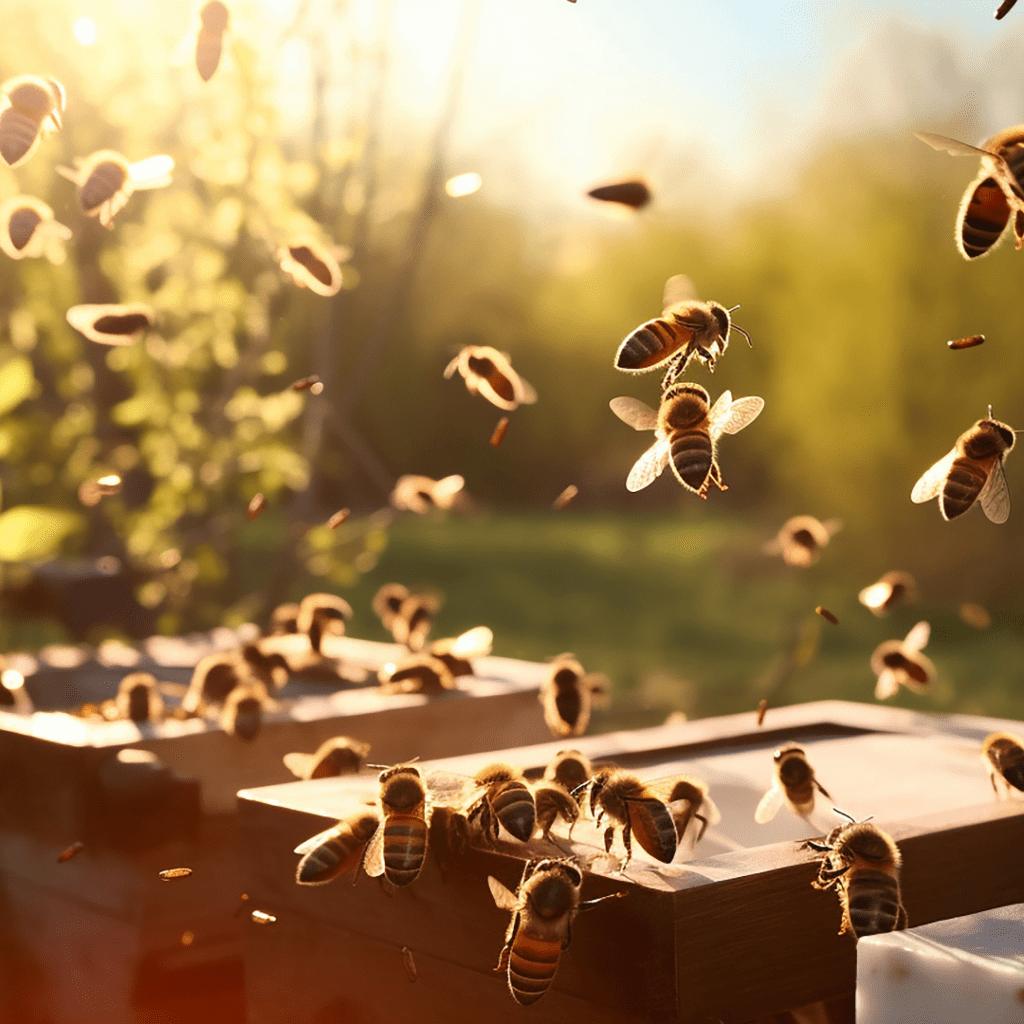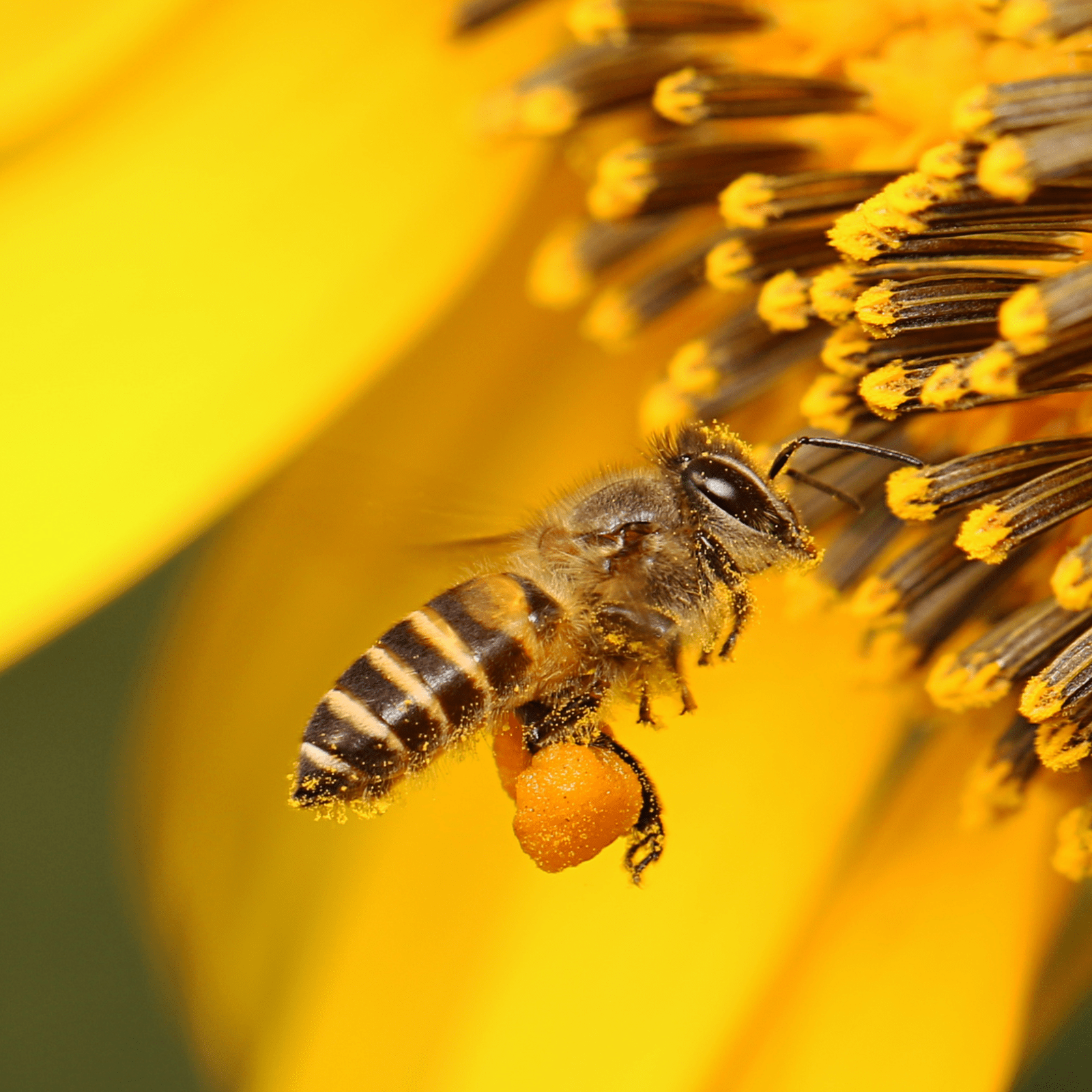Agriculture and beekeeping are two sides of the same coin. Today more than ever it is important that farmers and beekeepers are increasingly united to safeguard bees and the entire ecosystem. As? Through many good agricultural practices and more!
Agriculture and beekeeping are two sectors which, if well integrated with each other, can do a lot for the good of the entire ecosystem. Today, the entire agricultural supply chain is increasingly attentive and sensitive to the presence of bees and hives.
Bees play a vital role in the pollination of agricultural crops, a vital ecological service for food production.
To obtain better production, farmers increasingly resort to the presence of beehives. We must not forget that the one between agriculture and beekeeping is a symbiotic relationship: Beekeepers are often farmers themselves.
A bond that, if managed in a sustainable way, can lead to truly positive results for everyone and, naturally, for the environment.
The crucial role of bees in agriculture
Bees are among the most important pollinating insects and their very existence represents a key element in food production. It is estimated that over 75% of crops grown for human consumption depend on pollination animal, and primarily by bees.
Fruits, vegetables, seeds, nuts and many other crops depend on their pollination for good and better production. Without the help of bees, many of these crops would not exist.
This means that a wide variety of food that we humans are used to would no longer exist!
The lack of variety of food and of the crops themselves it is an enormous damage to the subsistence of man and of agriculture as a whole.
How agriculture affects bees
It should never be forgotten that intensive agricultural practices, excessive and constant use of pesticides and loss of natural habitat are significant threats to bees.
Pesticides, especially those a neonicotinoi baseof are very harmful to bees. Since the 1990s, neonicotinoids, which attack the nervous system of insects to eliminate them, have become among the most used insecticides in the world. Recently many scientific studies have demonstrated the damage they cause to pollinators. Even in very small quantities, in fact, once the bees have absorbed their harmful effect, they lose their sense of direction and not they no longer find their hive.
And even more seriously, they reduce their resistance to diseases and parasites. At the same time, the destruction of natural habitats that pesticides cause, including flowering meadows and flowering trees, limits food and nesting resources for bees.
In January 2020, the European Commission, after the proposal and the ban on 22 October 2019, decided to do not renew the license for the marketing in Europe, in particular, of the most widespread insecticide thiacloprid. But, although their use has been limited, even today, these insecticides are used in agriculture when there is an emergency (one of the best-known cases is that linked to sugar beets).
In fact they represent a enormous burden for protection of bees and hives.
Agriculture and beekeeping: good practices for bee conservation
To preserve and support the bee population, good agricultural practices and targeted interventions are needed such as the elimination of pesticides harmful to bees and the use of natural or non-harmful alternatives. Furthermore, it is equally important to apply pesticides during the hours when bees are less active. Beyond this it is possible to do other fundamental actions:
- Flowering Areas: Create and protect flowering areas, such as flower meadows and rows of flowers in all seasons in order to provide bees with continuous sources of food and promote their health with a much more balanced diet.
- Crop diversification: Diversity of agricultural crops means greater access to food resources for bees throughout the year.
- Sustainable agricultural practices: Implement agricultural techniques capable of reducing soil erosion and water pollution, such as organic farming, agroforestry or indeed, crop rotation.
- Habitat conservation: Preserve and protect natural habitats such as field edges, woodland areas and open spaces. Maintaining or restoring these areas helps bees find nesting places.
- Education and awareness: Involve farmers and beekeepers in common actions for the protection and conservation of bees.
- Support for beekeepers: institutions must help beekeepers through support policies and incentives, guaranteeing a favorable environment to their activity. For example through grants for the purchase of equipment or through the creation of protected spaces.
- Monitoring and research: regular monitoring of bee populations allows us to better understand the causes of their decline and at the same time, to develop effective solutions.
The Memorandum of Understanding between agriculture and beekeeping
To promote closer collaboration between farmers and beekeepers, many regions and organizations have adopted memoranda of understanding. These protocols create a basis for implementing concrete measures that benefit bees and the environment.
These agreements imply:
- Knowledge exchange: Farmers can learn from beekeepers' practices, adopting more sustainable agricultural policies that take into account the welfare of bees.
- Joint monitoring: The beekeeper and the farmer can together monitor the progress of bee colonies and evaluate the impact of agricultural practices on their well-being.
- Coordinated action: Join forces to implement all those practices that improve the health of bees, such as the creation of flowering areas, the reduction of pesticides and the diversification of crops.
The whole link between agriculture and beekeeping it is crucial for the survival of bees and, consequently, for food security and biodiversity. Closer collaboration is key and initiatives such as Memoranda of Understanding are a way to coordinate efforts and contribute to a sustainable future for all.
And this is why it is important to spread and make known the many possibilities we have to help our bee friends.



